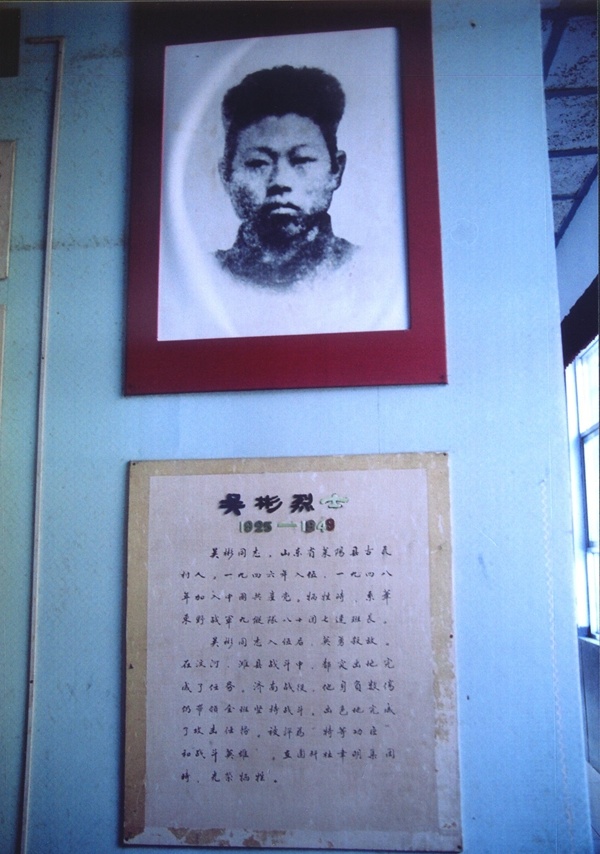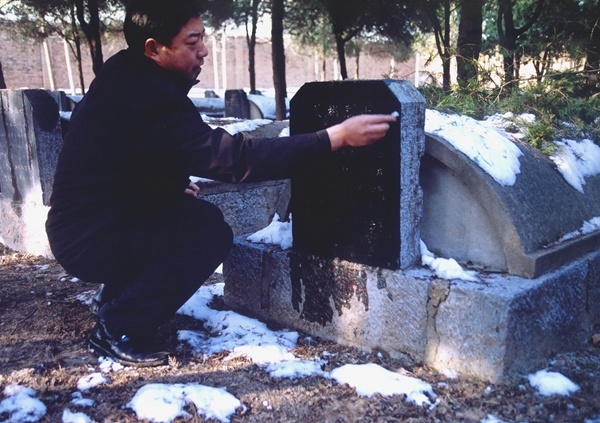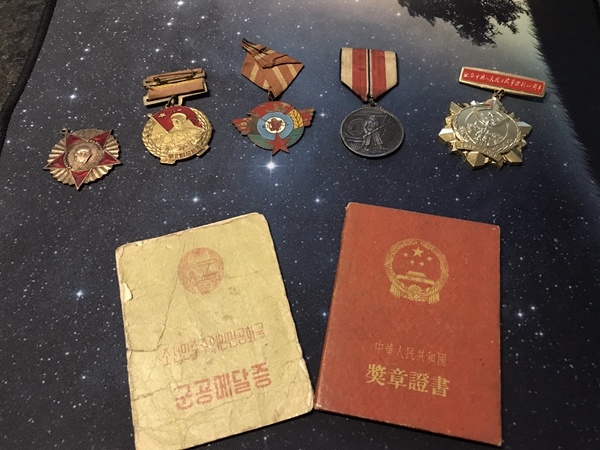25
2019
-
09
Family tradition passed down through generations, the red gene will be passed on forever - My family rules and precepts story
Author:
Family tradition is a subtle and gradual influence, learned and passed down from one generation to the next, carrying both historical inheritance and the spirit of innovation. General Secretary Xi Jinping once said, "The red gene must be passed on," and "We must use practical actions to pass on the red gene from generation to generation." In the 98-year journey, the fine traditions and excellent customs established by generations of communists have become exemplary family traditions. Xi Zhongxun encouraged his children to go to difficult places, asking them to "keep their tails between their legs"; Jiao Yulu taught his daughter, "You can't think you're superior just because you're the daughter of a county party secretary; you should go to difficult places to temper yourself"; Yang Shan Zhou strictly adhered to the rule of "no private use of public vehicles," even his daughter couldn't get a ride with him to see a doctor...Loyal and honest families endure, and literature and learning continue through generations. These earnest family instructions and noble family traditions lay the foundation for the children's growth and shape the character and quality of the entire society.
In my family, from my grandfather's two brothers, my maternal grandfather, my father, to me, three generations of Communist Party members have always upheld the family rules and instructions of "Family tradition through generations, the red gene forever passed on." We use our actions to interpret the values of a Communist Party member, allowing the red family tradition to be passed down from generation to generation, and the red gene to be inherited by every generation.
The "Old Revolutionary" Who Concealed His Merits
The Huaihai Campaign was one of the three decisive battles in the Chinese People's War of Liberation, and it was also the most intense, complex, longest, and bloodiest battle with the largest number of enemy casualties and the largest scale of civilian support. The average number of casualties per day was 500; every two minutes, a soldier died on the battlefield. My great-grandfather (my grandfather's elder brother)—martyr Wu Bin—was one of them.
In November 1946, my great-grandfather joined the Chinese People's Liberation Army. Due to the battles fought across the country, he quickly lost contact with his family, until two years later when they received the martyr's notification. The family only knew that he died in Henan, but they didn't even know where he was buried. My great-grandmother and grandfather's greatest wish before their death was to find the place where my great-grandfather was buried, but they both left this world with this regret.
To fulfill the wishes of my great-grandmother and grandfather, my father embarked on a search for his relatives at the beginning of this century. After visiting several martyrs' cemeteries in different cities in Henan, his efforts finally paid off. He found my great-grandfather's tombstone at the Huaihai Campaign Memorial Hall in Chen Guanzhuang, Yongcheng. Buried with my great-grandfather were 651 other revolutionary martyrs.
According to the director of the memorial hall, Martyr Wu Bin joined the Chinese Communist Party in 1948 and participated in the battles of Menglianggu, Wenhe, and Tanxian. In November of the same year, he gloriously sacrificed himself during the Huaihai Campaign to encircle and annihilate Du Yuming's army. He was 23 years old, had served for 3 years, and had been a party member for less than a year. Before his sacrifice, he was the squad leader of the Seventh Company, Eighty Regiment, Ninth Column of the East China Field Army. According to the Laiyang County Annals, in the Nanma Linqu battle in July 1947, due to a lack of fodder, the mules and horses were too weak to carry the cannons. Wu Bin volunteered to disassemble the cannons and transport them using warhorses, which was several times faster than transporting them as a whole. In the Battle of Jinan in September 1948, disregarding his personal safety, he pushed the cannons to a position only tens of meters from the enemy and aimed and fired, with every shell hitting its target, successfully completing the artillery attack mission. During the battle, Wu Bin suffered multiple injuries but persisted in fighting until the end. After the war, he was awarded the title of "First-Class Meritorious Service" and "Combat Hero." Even now, the martyr's deeds exhibition hall still displays my great-grandfather's portrait, relics, and his heroic deeds.
My great-grandfather's life was dedicated to the cause of communism and the interests of the people. Although short, it was glorious. Like other heroic revolutionary martyrs, he has not been forgotten by the motherland. His name is recorded in the history of the Republic and in the hearts of the people he loved.

In 2009, my father took my mother and me to the place where my great-grandfather sacrificed himself. We paid our respects at his tombstone. In that moment of bowing, we carried the weight of years, and a family tribute 60 years overdue was finally fulfilled. On the large screen in the main entrance, the inscription by Comrade Deng Xiaoping is particularly striking: "The sons and daughters of China will always remember: Your happiness was bought with the blood of our martyrs! The martyrs of the Huaihai Campaign will live forever!" Yes, we should not forget that without those martyrs who died in battle, how could we have today's happy life? My father said to me, "Great-grandfather will always be the pride of our descendants. We are proud of him, and we will never forget our origins and our original aspirations!" These words have always been engraved in my heart.

The "Old Revolutionary" Who Concealed His Merits
My maternal grandfather, Huo Shaoqing, was an old party member with 66 years of party membership. He participated in the Anti-Japanese War, the War of Liberation, and the War to Resist US Aggression and Aid Korea, and once served as the battalion commander of the Fourth Battalion, Sixth Regiment, Second Division of the Railway Corps. In 1950, when the Korean War broke out, my grandfather, despite his injuries and illnesses, volunteered to go to the front lines. His railway troops built an "unbreakable and indestructible steel transportation line" with their blood and lives, writing a glorious chapter in the annals of the War to Resist US Aggression and Aid Korea.

"Loyal to the Party for a lifetime, dedicated for a lifetime." In the army, he defended the country; in civilian life, he served the people. After retiring from the army, he came to Yichang and served as the stationmaster of the Yichang Department Store until his retirement. After the end of the "ten years of turmoil" and the smashing of the "Gang of Four," the Party led the people of the whole country in rectifying the mistakes, and state-owned enterprises, which had been stagnant, resumed growth. Under the leadership of my grandfather, hundreds of employees of the department store overcame difficulties and challenges, quickly turning losses into profits, and growing along with the development of China's market economy.
My maternal grandfather worked tirelessly for the country and his family throughout his life. His education of his grandchildren was like spring rain nourishing the wheat fields, silently penetrating and subtly influencing, driving his descendants to strive for self-improvement and bravely forge ahead.
When I was very young, my maternal grandfather told me stories of the red era, often making my heart surge with emotion, as if they were engraved in my heart. The railway troops were logistical support troops, armed only with rifles, often helpless against enemy air raids. My grandfather and his comrades, under the low-altitude bombing and strafing of enemy aircraft, desperately repaired and maintained the railway lines in the war zone, racing against death with the enemy on the only more than 1,000 kilometers of railway line on the Korean Peninsula. My grandfather had more than a dozen large and small scars from the battles, his left forearm was just a layer of skin covering a bone, and his right thigh was torn and wrinkled due to shrapnel wounds, a sight both shocking and heartbreaking. My grandfather said that although the years spent on the battlefield were difficult and dangerous, he would never forget them. He was proud and honored to be a Communist Party member and a soldier.
My maternal grandfather lived an honest and upright life, never taking advantage of the public. In his final moments, his thoughts were still on saving public funds and not causing trouble for others. In 2005, he was hospitalized due to a severe stroke. Although the local government and hospital offered special care, he firmly refused, proposing a "three no's" principle: "no imported medicine, no excessive treatment, no trouble for the organization." He insisted on conservative treatment for eight years until his passing in 2013.

After my maternal grandfather's death, my maternal grandmother gave my parents his military medals and certificates, which he had treasured for over 60 years but never shown to anyone. The years of war had faded into history, but at that moment, the tarnished medals and certificates shone brightly, reflecting his glorious story and unwavering integrity, his dedication to defending the country, and the remarkable life of an old revolutionary and party member.

Following in the footsteps of our ancestors, the "Communist Party members"
Home is the smallest country, and the country is made up of millions of homes. It is because of people like my great-grandfather and maternal grandfather, who prioritized the collective over the individual, generation after generation, that our country has achieved its current prosperity and strength. Their spirit shines like stars in the vast sky, illuminating the path of their descendants. I believe this is the family tradition and spirit they left us.
My father joined the Chinese Communist Party 25 years ago and is now a grassroots party branch secretary. He has been awarded titles such as "Excellent Trade Union Worker in the National Transportation Construction System," "Excellent Trade Union Worker in Hubei Province," and "Excellent Party Worker in Hubei Province." My father has always been diligent, honest, and upright, consistently demonstrating his love and loyalty to the Party through his words and actions. From a young age, I was nurtured by my father's "red family tradition" and received a good red education. His words and deeds inspired me to aspire to become a Communist Party member. The heroic deeds of those Communist Party members educated and encouraged me, filling me with respect and love for the Chinese Communist Party. After entering university, I submitted my application to join the Party branch and, at the age of 20, I proudly became a member of the Chinese Communist Party, following in the footsteps of my ancestors and parents.
After graduating from university, I followed in my father's footsteps and became a worker in the Yangtze River shipping industry. Like the clear waters of the Yangtze River flowing through generations, a unique faith, emotion, and integrity have been subtly instilled in our family. My father said, "We drink the water of the Yangtze River and rely on the Yangtze River shipping industry for our livelihood; we must share its glory and hardship!" Unknowingly, the "larger family" of Yangtze River shipping and our "small family" have become closely intertwined.
A pure family tradition nourishes all things, reflecting the Party's spirit. My father still teaches my husband and me: "Both of you are Communist Party members; you must listen to the Party and follow the Party's lead. You must work diligently and accept hardship, for those who choose hardship also choose success!"
The inheritance of family traditions does not require deliberate indoctrination; it is more important to cultivate a force in daily life that continuously influences the next generation. Just as my father's actions influenced me, my actions influence my children. My son is almost two years old. Although he doesn't yet understand what the country or the Party is, I can confidently say that through the education and training of our family "Party branch," he will surely inherit the red genes of his ancestors, carry on the red blood of our family, and strive to grow into an idealistic, capable, and responsible builder and successor of socialism, becoming the fourth generation of Communist Party members in our family.
A righteous family tradition is both a historical inspiration and a call of the times. Some say that in this peaceful era, such sentiments are outdated. However, I believe that excellent family traditions should be passed down from generation to generation, continuing endlessly... Names may fade, and the color of blood may dim, but the strong bones will not decay, and the oaths defended with life will not disappear. Generation after generation has followed the Party, never forgetting its original aspirations, with the Party's soul immortal and family traditions forever preserved!
Related News



